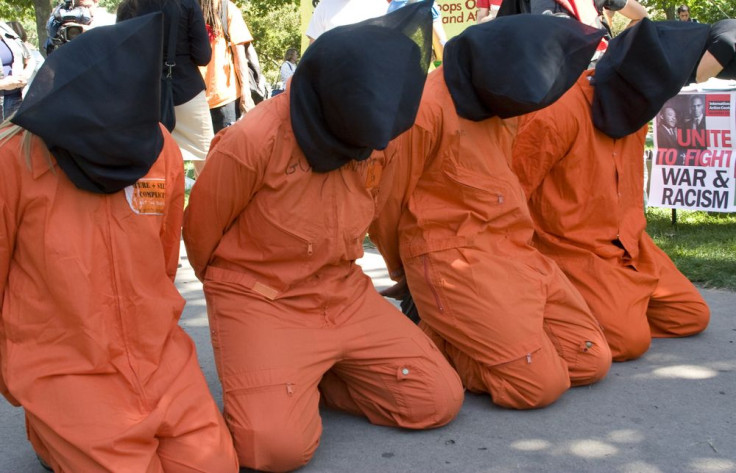Navy Nurse Becomes The First Military Personnel To Refuse Force-Feeding A Detainee At Guantanamo Bay

Force-feeding military detainees who refuse nourishment by the United States Armed Forces has been met with a great deal of criticism, including many human rights groups who regard the practice as a form of torture. According to a London-based lawyer representing a Guantanamo Bay detainee on hunger strike, a Navy nurse has become the first military personnel to stand up against force-feeding by refusing to carry out the practice and deciding it was a criminal act.
Back in 2006, the World Medical Association, a global organization represented by doctors and other health care professionals promoting standards of medical ethics, addressed the practice of force-feeding in the Declaration of Tokyo:
Where a prisoner refuses nourishment and is considered by the physician as capable of forming an unimpaired and rational judgment concerning the consequences of such a voluntary refusal of nourishment, he or she shall not be fed artificially. The decision as to the capacity of the prisoner to form such a judgment should be confirmed by at least one other independent physician. The consequences of the refusal of nourishment shall be explained by the physician to the prisoner.
Abu Wa'el Dhiab, a 42-year-old Syrian detainee, has been at Guantanamo since 2002 and has been up for release since 2009. However, he has not been relocated due to political unrest in his homeland. Dhiab became part of the prison population who went on hunger strike in February 2013. During a call with his attorney, Cori Crider, an attorney for the British legal rights group Reprieve, Dhiab disclosed that a nurse leading a medical team at the U.S. prison camp in Cuba had refused to carry out force-feeding, calling it a criminal act.
"Even before his decision, though, you could tell he was very compassionate, but this one soldier stood up and refused to do it. This takes real courage," Crider quoted Dhiab via their phone interview. "Refusing to force-feed us was a historical act and a strong statement. We were all amazed."
Army officials said the nurse is a lieutenant and has been reassigned to other duties at Guantanamo. The prison camp currently houses 149 detainees, 34 of which Crider said are on hunger strike. Crider also quoted Dhiab as saying that other medical officers also objected to force-feeding but had no choice other than to take part in the procedure.
“There was a recent instance of a medical provider not willing to carry out the enteral feeding of a detainee,” Guantanamo spokesman Navy Capt. Tom Gresback told the Miami Herald in an email. “The matter is in the hands of the individual’s leadership.”
Published by Medicaldaily.com



























